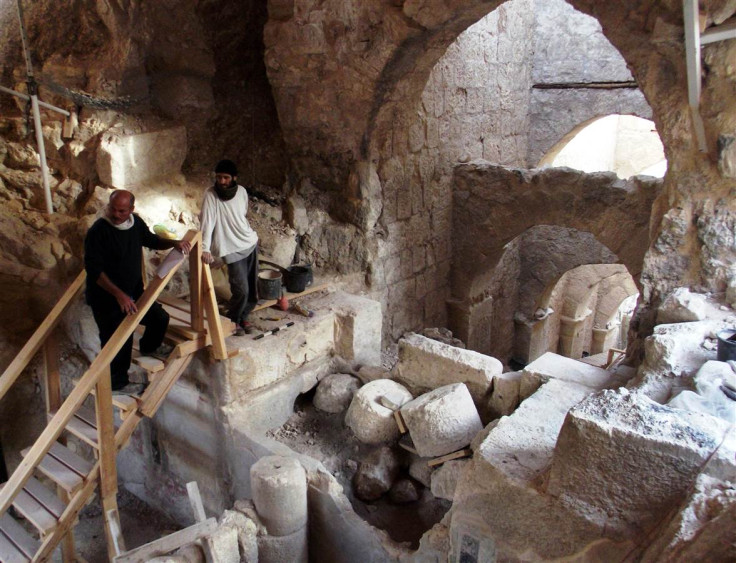Gateway to King Herod's palace unearthed by archaeologists
Entrance to Herod the Great's 2,000-year-old palace discovered in Israel

The entrance to King Herod's 2,000-year-old palace has been discovered in Israel.
Archaeologists have uncovered the colossal arched corridor leading to a magnificent entrance hall covered with frescoes during excavations at Herodium.
The main feature is a 20-metre-high royal corridor with a complex system of arches, which would have allowed the king and his entourage direct passage into the palace courtyard.
The Herodian Hilltop Palace, 10 miles south of Jerusalem, was built to celebrate Herod's victory over the Parthian Empire from what is now modern-day Iran, according to the Hebrew University of Jerusalem.
The excavations also found evidence of the vestibule occupied by Jewish rebels during the Great Revolt of 66CE-71CE. The arched corridor contained hidden tunnels dug by rebels from the second century CE as they conducted guerilla war against the Romans.
Supported in part by wooden beams, these tunnels exited from the hilltop fortress by way of the corridor's walls, through openings hidden in the corridor. One of the tunnels revealed a well-preserved construction of 20 or so cypress wood branches, arranged in a crossweave pattern to support the tunnel's roof.
But Roi Porat, Yakov Kalman and Rachel Chachy, from the Hebrew University of Jerusalem institute of archaeology believe the entrance was never used.
"This appears to have happened when Herod, aware of his impending death, decided to convert the whole hilltop complex into a massive memorial mound, a royal burial monument on an epic scale.
"Whatever the case, the corridor was backfilled during the construction of the massive artificial hill at the end of Herod's reign."
Herod died in Jericho in the spring of 4 BCE of an illness called "Herod's Evil", which is thought to have been a combination of cirrhosis of the liver, hypertension and diabetes.
Ancient texts describe the symptoms Herod experienced which included painful intestinal problems, convulsions in the limbs, intense itching, breathlessness and gangrene of the genitalia. Josephus wrote that Herod's final days were excruciating.
Other theories believe that King Herod died at 69 years of age from complications of gonorrhoea.
His body was buried in a tomb on the site of the fortress, which archaeologists claimed to have uncovered in 2007.
In the future, the excavation of the arched corridor will allow visitors direct access to the Herodium hilltop palace-fortress, in the same way that Herod entered it 2,000 years ago.
Shaul Goldstein, Director of Israel's Nature and Parks Authority also revealed plans to provide tourists direct access from the structures on the slope, the Royal Theatre and the Mausoleum, via the earlier monumental stairway, to the hilltop Palace.
© Copyright IBTimes 2025. All rights reserved.






















